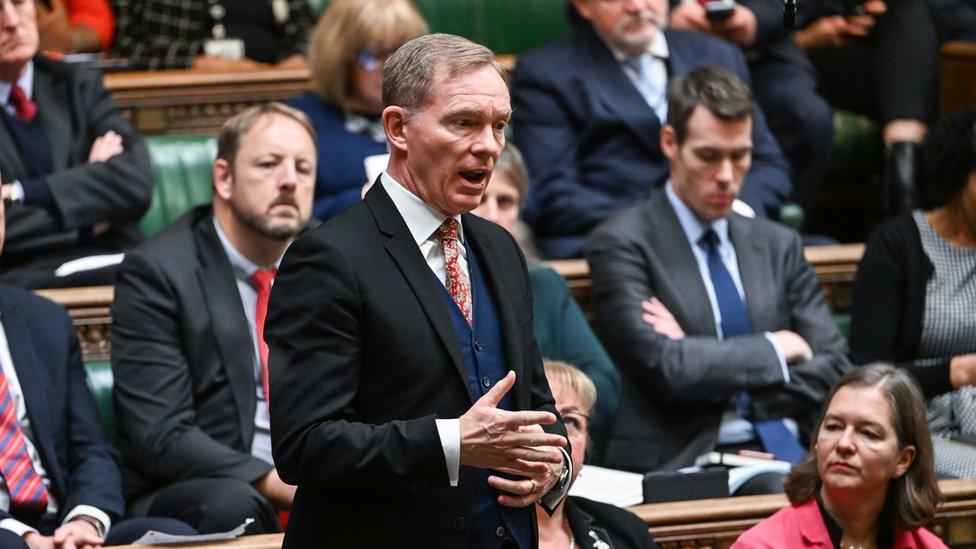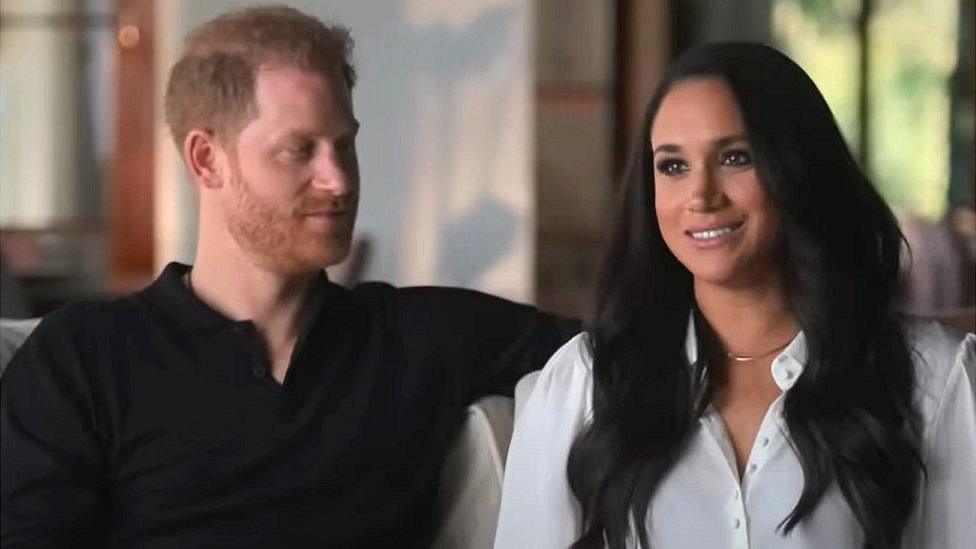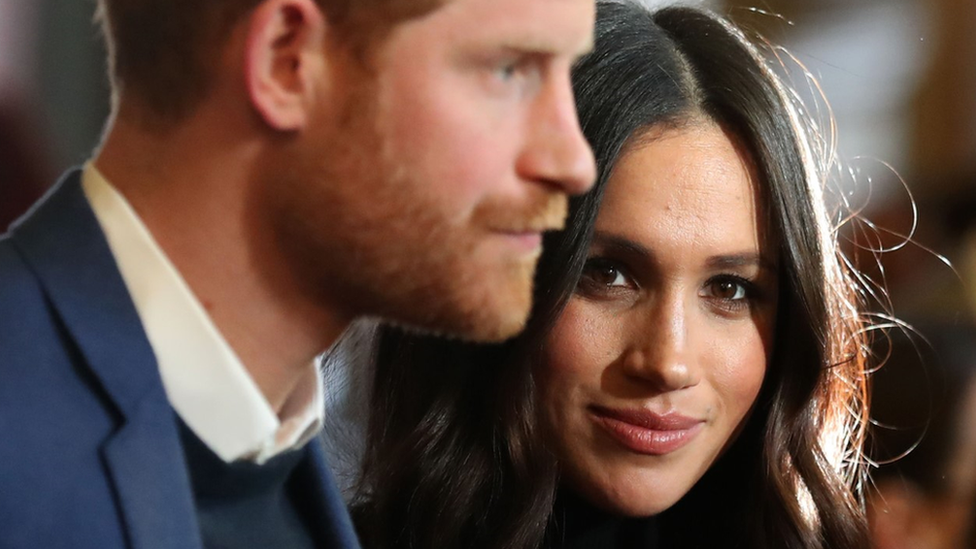Harry and Meghan: UK press monetised hatred of couple, says MP
- Published

An MP has claimed newspapers targeted the royal couple to increase viewership and advertising revenue
A Labour MP has accused the British press of monetising online hatred of the Duke and Duchess of Sussex.
Rhondda MP Chris Bryant said newspapers had "filled their online sites" with "hateful Meghan Markle material".
"It is becoming their richest clickbait scene… it drives viewing and earns advertising income," he said.
He made the comments in a speech introduced by Hugh Grant at the annual Leveson Lecture, external held by press-reform group Hacked Off.
Mr Bryant said the monetary incentive was "why so many British opinion writers penned so much drivel about the couple".
"Not because the story matters. It doesn't. Not because the writers genuinely cares about it. They don't. But because it makes money," he said.
"That is not journalism. It's a perversion of journalism and it means, yet again, the press see people lives as commodities to be traded."

Rhondda MP Christ Bryant made the comments in speech introduced by actor Hugh Grant, board member of press-reform group Hacked Off
Mr Bryant said one of the main reasons for the prevalence of hatred in media coverage were social media algorithms, and the type of content they promote.
He said the algorithms "nudge people to political extremes, they promote division, and they pervert the truth by creating an incentive for untruth".
"Far from caring about the harmful impact of algorithms, social media companies and their allies/competitors in the press rely on them, I think, to make money," he added.
'Coordinated, deliberate hate'
Mr Bryant said analysis by data firm Bot Sentinel showed just 83 Twitter accounts were responsible for 70% of the negative content targeted at the royal couple.
"To the innocent bystander it looks like the whole world hated Harry and Meghan, but this is not just normal, spontaneous or altruistic hatred.
"It is coordinated and deliberate, it uses social media recommender systems to amplify hated.
"Like clickbait, it uses hatred to entice people to follow a link to an article on another client web page where money is to be made. Which is how it knowingly monetises hatred."
- Published6 December 2022

- Published7 December 2022

